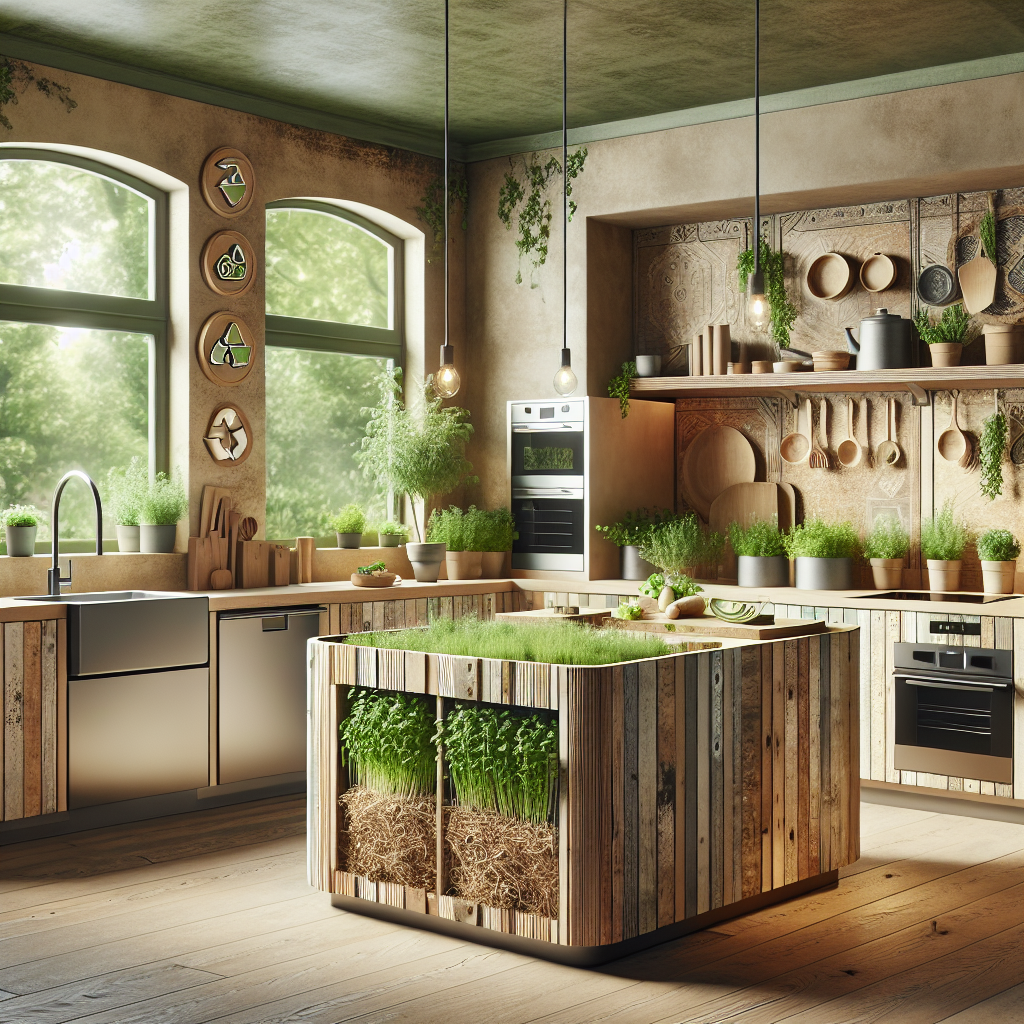Reducing Waste: Tips for a Zero-Waste Kitchen
Crafting an Eco-Friendly Kitchen with Sustainable Practices
Reducing Waste: Tips for a Zero-Waste Kitchen
In today’s world, where environmental concerns are at the forefront of our minds, it is essential to adopt sustainable practices in every aspect of our lives. One area where we can make a significant impact is in our kitchens. By reducing waste and embracing a zero-waste lifestyle, we can create an eco-friendly kitchen that not only benefits the planet but also inspires others to do the same.
One of the first steps towards a zero-waste kitchen is to minimize food waste. It is estimated that nearly one-third of all food produced globally is wasted. To combat this, start by planning your meals and shopping with a list. By knowing exactly what you need, you can avoid buying excess food that may end up going to waste. Additionally, consider composting your food scraps. Composting not only reduces waste but also creates nutrient-rich soil that can be used in your garden.
Another way to reduce waste in your kitchen is to eliminate single-use items. Plastic wrap, aluminum foil, and disposable cutlery are all culprits that contribute to our growing waste problem. Instead, invest in reusable alternatives such as beeswax wraps, silicone food covers, and stainless steel cutlery. These items not only reduce waste but also add a touch of style to your kitchen.
When it comes to grocery shopping, opt for bulk items whenever possible. Buying in bulk reduces packaging waste and allows you to purchase only the amount you need. Bring your own reusable bags and containers to the store to avoid using plastic bags or packaging. Not only will this help reduce waste, but it will also save you money in the long run.
In addition to reducing waste, it is important to conserve energy in your kitchen. Start by using energy-efficient appliances. Look for the Energy Star label when purchasing new appliances, as these are designed to use less energy and water. When cooking, use the right-sized pots and pans for your stove burners to maximize efficiency. And don’t forget to turn off the lights and unplug appliances when they are not in use.
Water conservation is another crucial aspect of an eco-friendly kitchen. Install low-flow faucets and aerators to reduce water usage. Collect and reuse water from rinsing fruits and vegetables to water your plants. And always run your dishwasher and washing machine with full loads to minimize water waste.
Lastly, consider growing your own herbs and vegetables. Not only does this provide you with fresh, organic produce, but it also reduces the carbon footprint associated with transporting food from farm to table. Even if you don’t have a large garden, you can still grow herbs in pots on your windowsill or balcony. It’s a rewarding and sustainable way to add flavor to your meals.
Crafting an eco-friendly kitchen with sustainable practices is not only beneficial for the environment but also for your overall well-being. By reducing waste, conserving energy and water, and growing your own food, you are taking steps towards a more sustainable lifestyle. And by inspiring others to do the same, you are creating a ripple effect that can lead to a greener, healthier planet for future generations. So let’s embrace the challenge and make our kitchens a hub of sustainable living.






